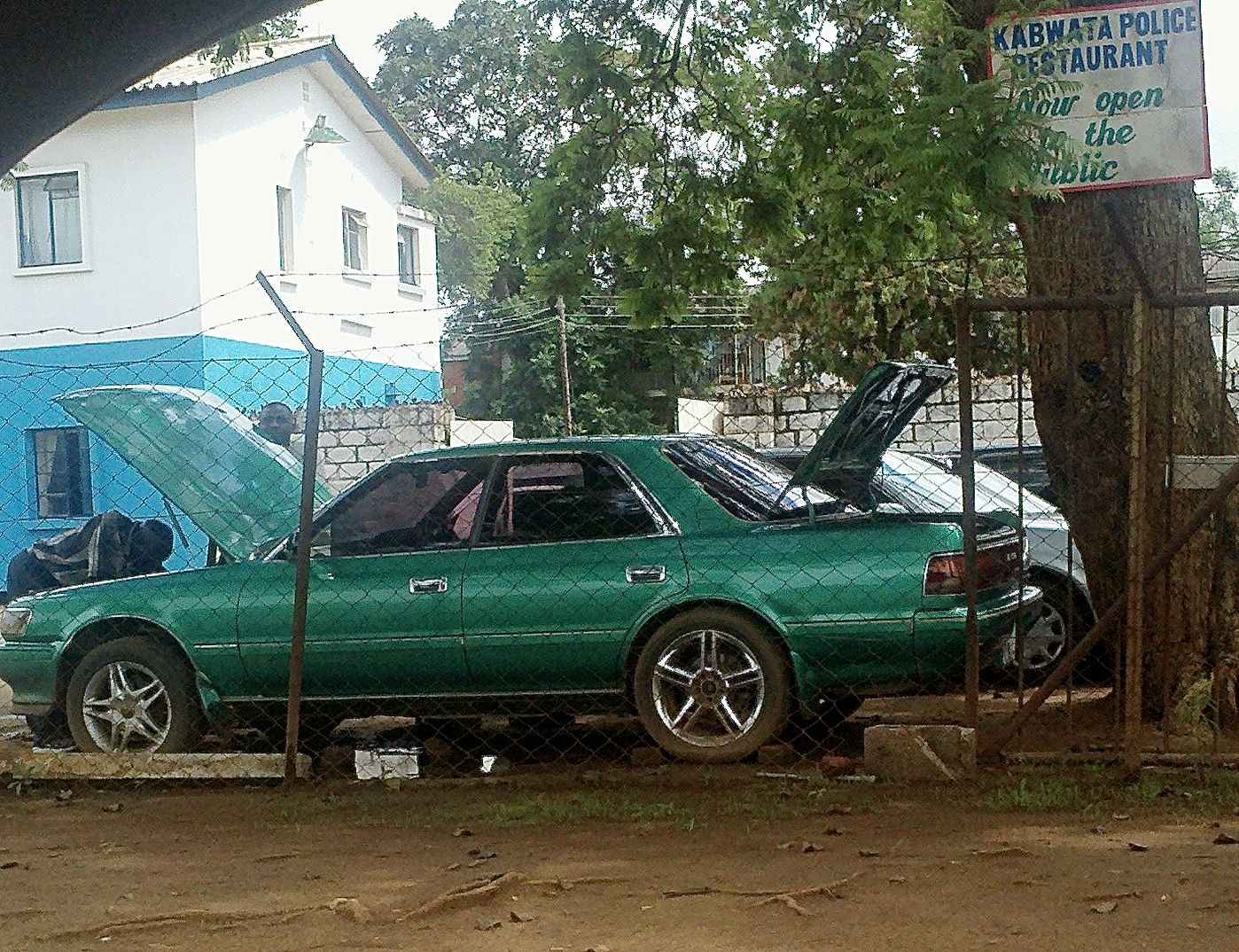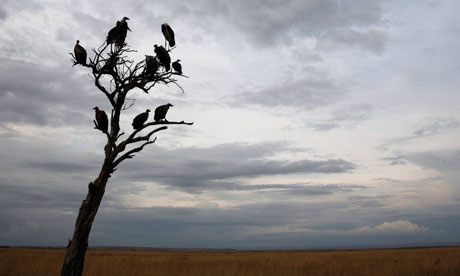
The image of Africa in the popular imagination is full of negative stereotypes about poverty, and recently, there's been a vocal minority agitating to tell different kinds of stories that are more positive about Africa.
During my investigation of vulture funds, I came to wonder if vulture investors weren't actually the biggest Afro-positivists of all. Because they understood something most people don't: There's actually a lot of wealth in Africa.
Timber, rubber and oil. Diamonds and copper. Coltan and tin and tantalum — that stuff you carry around with you every day in your cell phone and laptop. There's no one aggregate figure for all of Africa's natural wealth, but the minerals beneath the soil of the Democratic Republic of Congo alone are estimated to be worth $24 trillion — one third more than the American GDP.
In the media, we mostly talk about Africa's mineral wealth in conjunction with conflict. Charles Taylor, the notorious Liberian president-turned-warlord, was after Sierra Leone's diamonds. Congo's multiplicitous rebel groups are after those cell phone minerals, or even just gold.
There's also cash. Economists Léonce Ndikumana and James Boyce, in their fascinating short book "Africa's Odious Debt," crunch numbers about capital flight from Africa and find a startling truth: If the cash leaving the continent for European bank accounts or shady shell companies — to say nothing of the bills stuffed in briefcases and carried onto airplanes — actually stayed in Africa, that continent which reaps the greatest number of Western donor dollars would actually be the world's biggest creditor.
If you were an investor, Africa would be a good — even an obvious — bet. The World Bank has projected that Sub-Saharan Africa's economies will grow 5.4 percent this year. But according to a 2012 Congressional report, only 1 percent of American foreign direct investment flows into Africa.
Here's the other thing we miss about an Africa rich in so many literal ways: Its money vanishes. Corruption, like mineral wealth, is a foundation of many African economies.
What's all this got to do with vulture funds? I think it makes the question of whether they're good or bad much more complicated. Anti-vulture advocates say that vulture investors are essentially stealing from starving kids in order to make a quick buck. But in many ways, the countries they are targeting aren't poor, even if their people are. And the leaders of those countries, often, are literally rich. They spend lavishly on European wardrobes, California real estate, expensive pink Champagne, and other luxuries. Is it possible that a vulture investor who wins a settlement is metaphorically stealing from the people of Zambia, when the president of Zambia is at the same time convicted of literally stealing from his own people?
Ultimately, I suppose, that's a matter of perspective. All money is fungible, after all. And some facts are, too.
At the heart of my skepticism about the advocacy narrative are bigger, even more unwieldy questions: Why is Africa poor? What has the power to end poverty? Who is really responsible for the poverty we see in Africa — and who has the power to stop it? Those answers are more complicated than we often think.



